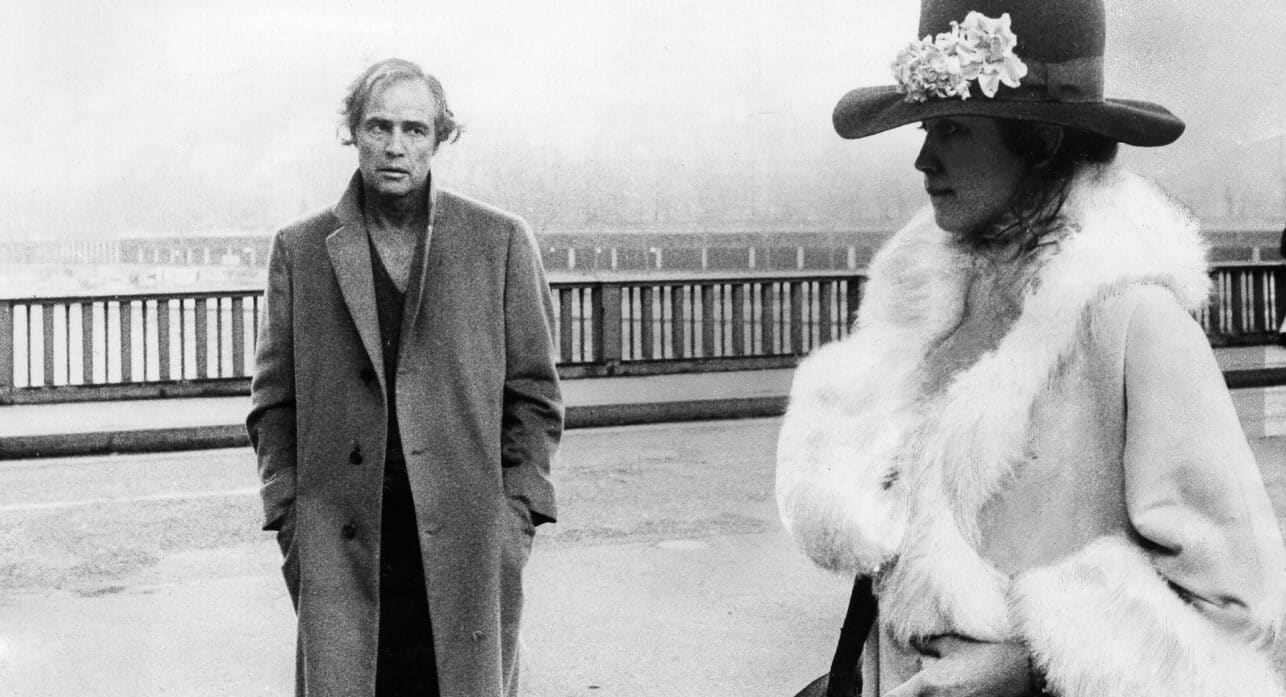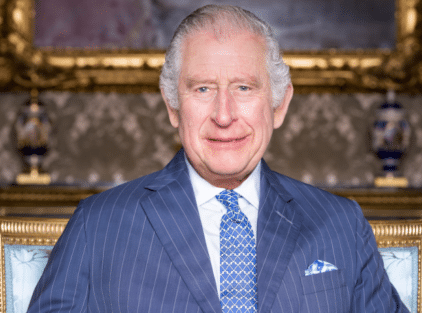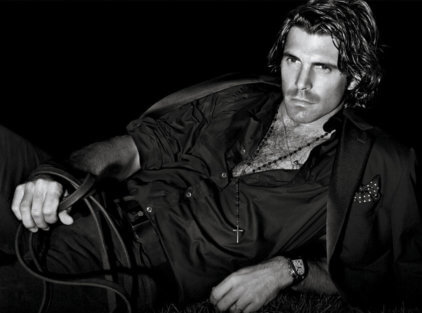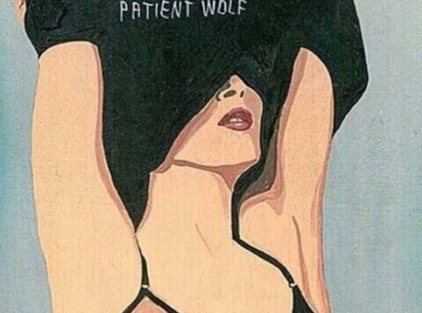By Kelly Stavropoulou
Last Tango in Paris. A phrase that in itself refers to a romantic romance, 50 years ago, it became the title of an iconic film and eventually came to be identified with violent sex, with the paradox that can link a man and a woman and of course with Paris – in a more realistic version this time.
Bernardo Bertolucci directs his personal fantasies against the backdrop of a Paris that eschews its clichéd description as “the City of Light”. Deceptive and atmospheric, full of inspiration and reasons to transcend personal boundaries, Bertolucci’s Paris is a place where real people with dark thoughts, violent instincts and carnal passions live. Dressed in the yellowish, retro ’70s veil, it makes you wonder for a moment if this version of it fits more than any other. As for the anarchic and erotic jazz melodies written by Gato Barbieri as a soundtrack follow the melancholy and realism of the direction.
It takes two to tango
While it may be an undisputed must-see today and a classic in our film library, Last Tango in Paris was considered inappropriate in its day due to its pornographic content and its creator, Bernardo Bertolucci, was accused of cruelty and misogyny. Only after French people formed queues outside cinemas and Spaniards travelled as far as their nearby Biarritz to see the long-running film was it allowed to be shown in America, England and some other European countries. How interesting can the story of a 45-year-old widower who meets a 20-year-old engaged girl by chance and they have sex without even exchanging names be in the end? Very, is the answer. Especially if that storyline unfolds under Bertolucci’s gaze. The scene in which Paul (Marlon Brando) asks Jeanne (Maria Schneider) to fetch the butter and rapes her on the floor – if an act that seems so natural can be called rape, it is said that it was off script and that Romy Schneider was actually crying, out of surprise and anger at what was happening. The actress would later state that her participation in the film was the only thing she regretted in her life. Marlon Brando will say that after Last tango in Paris he vowed never to be so brutal for the needs of a role again. Neither of them will ever speak to Bernardo Bertolucci again.
Writing about such a classic film, especially if you are not a film critic, you can only reproduce things that have already been said. The drama of an unhappy middle-aged man who escalates into angry sex. The naivety of a thrill-seeking girl who ends up unapologetically accepting abuse by calling it passion or love. A carnal relationship that due to desperation can be experienced as a love story and take a fatal turn. All said, recorded and repeated – in life and in cinema. However, we hold as a banner the vibrant Paris of the 70s, Barbieri’s jazz melodies and the most heartbreaking Brando we ever saw.
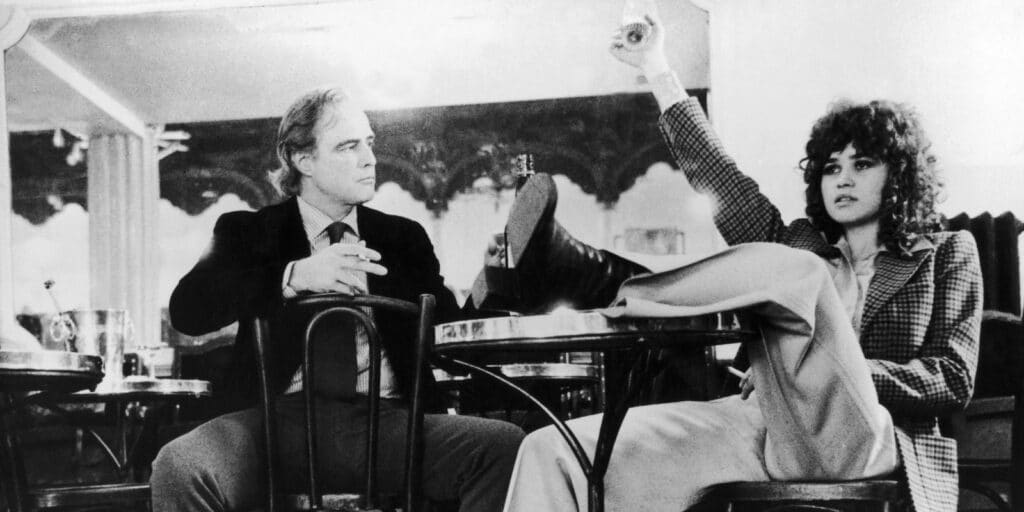
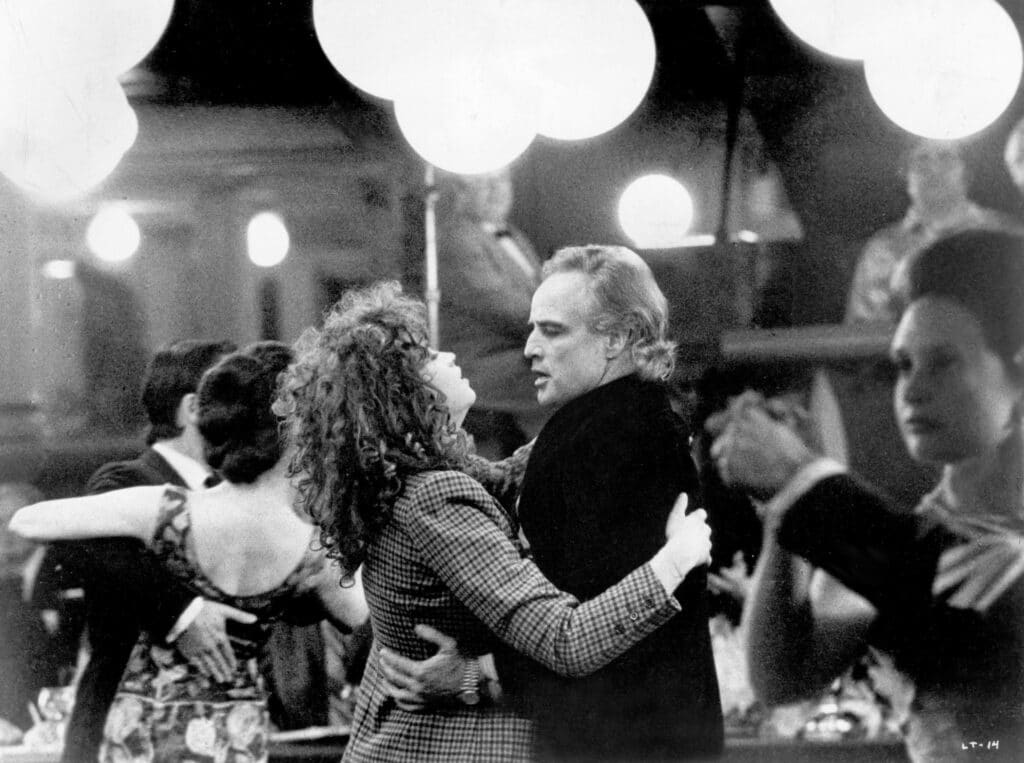
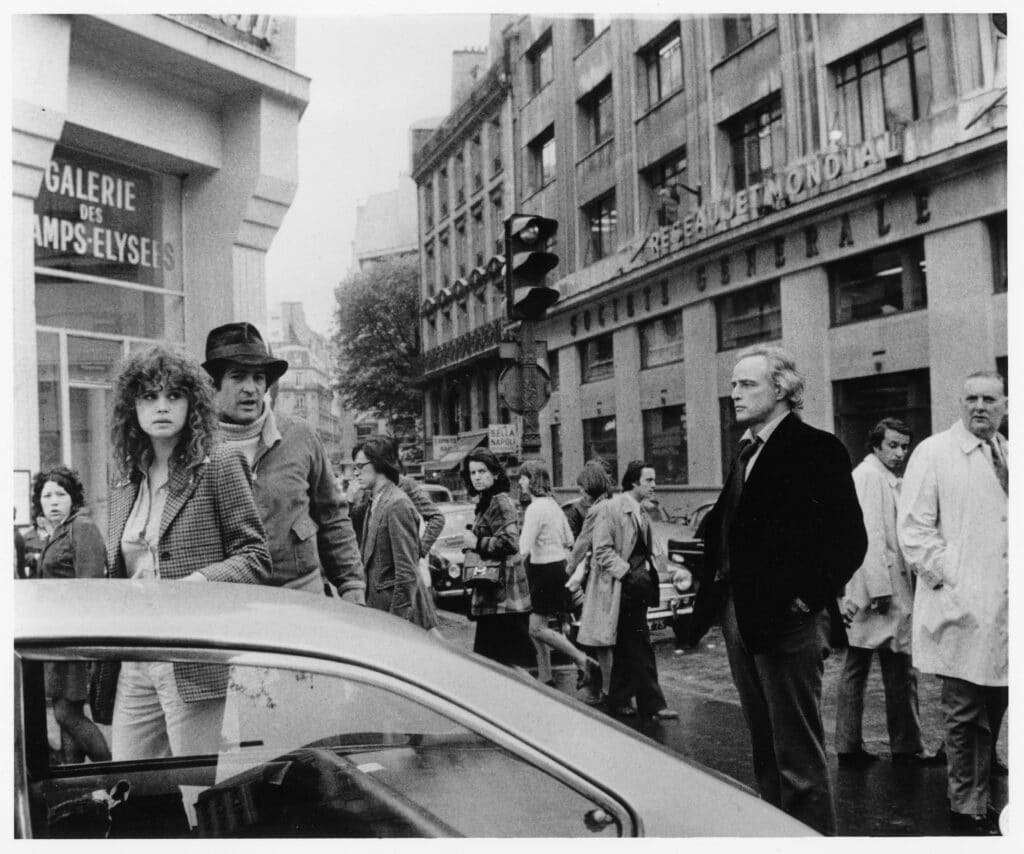
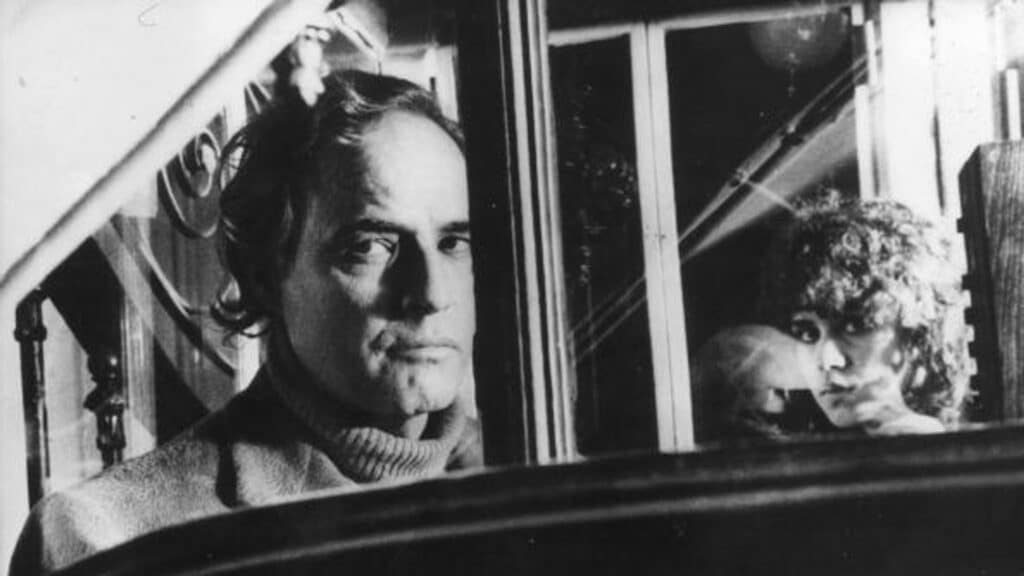
Photos Courtesy: Wikipedia
